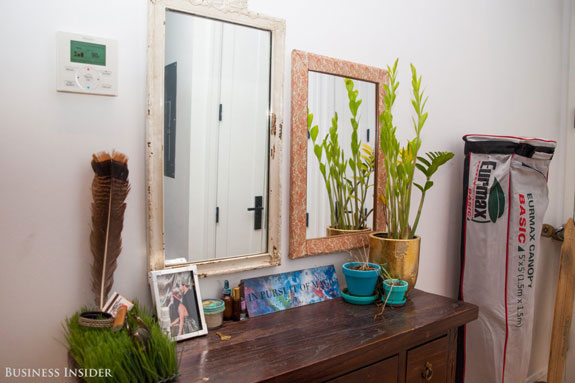Miki Agrawal isn’t afraid to defy expectations. A former investment banker, professional athlete, film producer, and restaurateur, she’s tried her hand at a half-dozen pursuits. Now, she’s the co-founder and mastermind behind one of the buzziest clothing brands on the block: Thinx.
You may know the name from their viral advertising campaign, which included pictures of grapefruits, eggs, and provocative statements plastered across New York City subways — and made waves online for the controversy it inspired. Or you may know it from someone who’s tried the product itself: underwear that was designed to replace feminine hygiene products, priced at $24-$38 a pair. It may sound simple, but Agrawal says it’s the first big attempt to introduce something new in feminine hygiene in centuries. And it’s a potentially $15 billion market.
“I want to be the taboo queen for the nether regions,” Agrawal told us.
Business Insider recently spent a morning at home with Agrawal in her Brooklyn loft space, learning about her winding road to entrepreneurship and the things — both material and spiritual — she’s collected along the way.
Originally from Canada, Agrawal now calls the hip Brooklyn neighborhood of Williamsburg home. The spot: a converted church just off the Bedford L stop. The sign out front still reads “All Are Welcome.”

Through the stained-glass entrance is a narrow hallway that leads to a series of apartments. Agrawal says that half a dozen of her friends live on the same floor of the building; they end many evenings in impromptu hangouts.
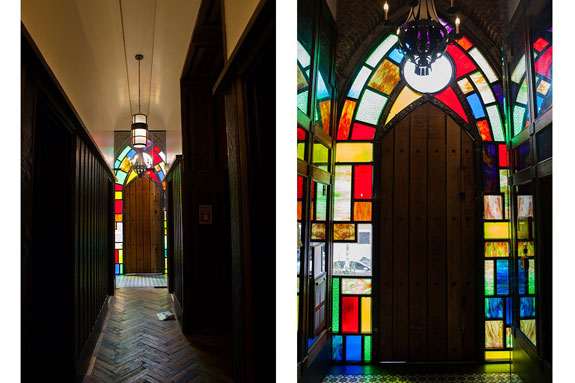
She shares the lofty space with her partner of five years, Andrew Horn. Like her, he’s an entrepreneur. That wasn’t always the case for Agrawal, though: after attending Cornell, she began her career as an investment banker. But the shock of 9/11 shifted her focus. “It was my wake up call — that a-ha moment,” she says of the events of the day.
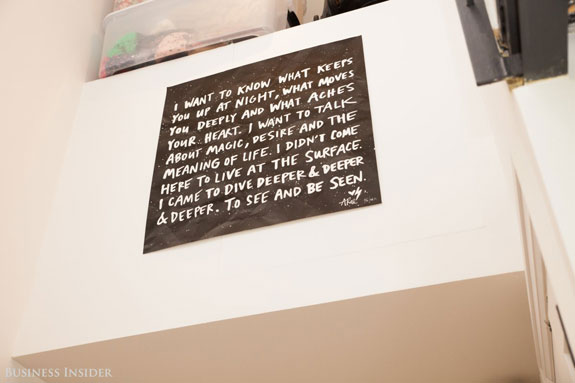
“Did I live a life actualized, or not?” she asked herself. So she wrote down three things she wanted to do: play soccer professionally, make movies, and start a business. This wall decoration is a gift from an artist friend — and a reminder to stay close to her goals.
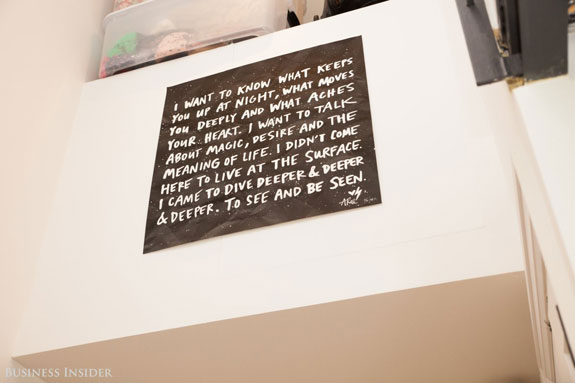
Agrawal played soccer professionally for the New York Magic before being sidelined by injury — twice. “I was like, ‘Universe, got it, thank you, OK, not my calling!'” she says of the experience. Next up: video production. On sets, presented with unhealthy foods, her first business idea struck: create a fresh, healthy, unprocessed pizza.
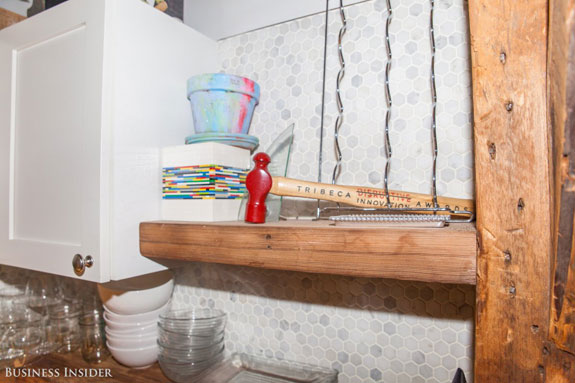
“I never cooked anything before opening my restaurant,” Agrawal said. She opened her first restaurant, Wild, in 2005. Now she’s part-owner of the restaurant’s two locations, having handed the reigns over to a partner. Below, her current kitchen.

Her refrigerator is decorated with notes, inspirational quotes, and an iteration of that controversial Thinx subway ad, showing a split, peeled orange. The idea behind Thinx stemmed from a frustration with “accidents” and with the taboos surrounding women’s hygiene.
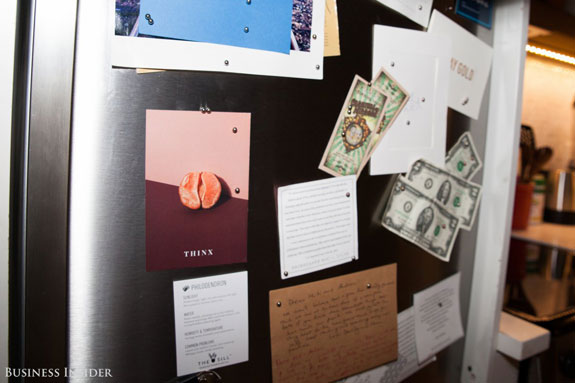
At the core of her business and her worldview is a belief in equal opportunity for women and the importance of each person fulfilling their potential. She chose this Ubuntu saying, “I am what I am because of who we all are,” and painted it on a piece of scrap wood she sanded and stained herself before putting it up above her kitchen.
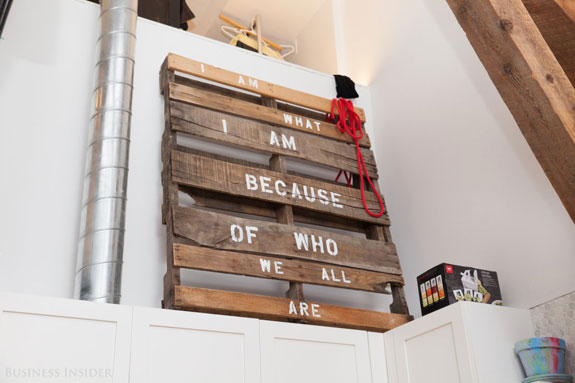
According to Agrawal, feminine hygiene is a $15 billion business — and it hasn’t been disrupted in centuries. In this corner of her apartment, a collection of candles is set up almost like an alternative altar.
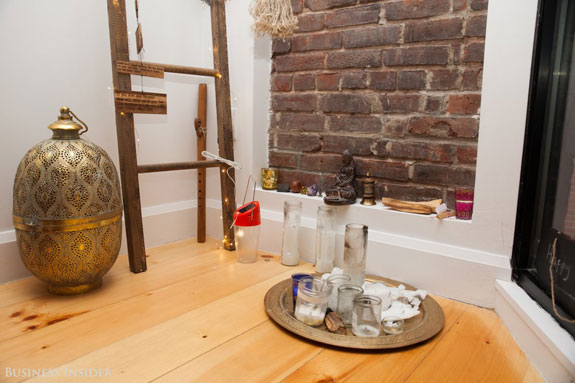
Thinx isn’t her only project: she’s also behind Icon Undies, an incontinence product, and Tushy, an entry-level bidet unit for any bathroom.
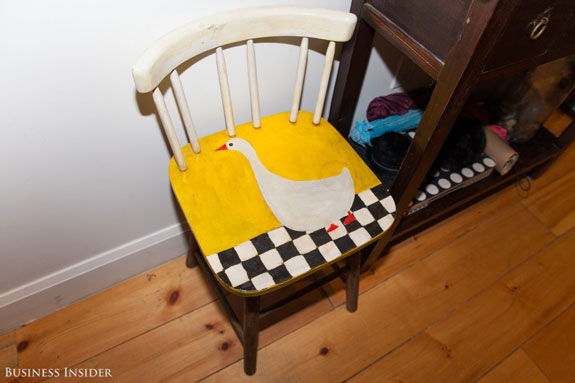
“My days are extremely high-octane,” she said. So coming home is like “a deep breath of fresh air.” This day bed on the main level of the apartment serves both as a bohemian-style seating area and storage.
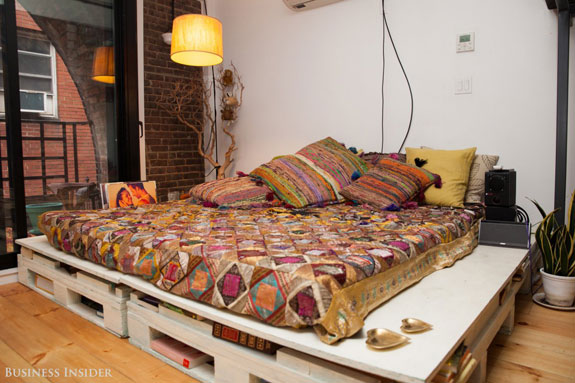
Above her bed hangs a dreamcatcher custom-made for her by Abel Costa, a mind-body therapist. Agrawal said that he channeled her aura in the weaving of the piece, which is made with 200-year-old kimono silk.
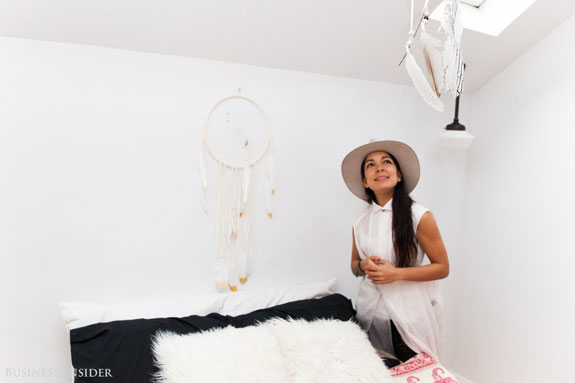
On her entrance table sits this stencil frame by graffiti artist Betty Kay Kendrick; you can find the “pursuit of magic” stamps scattered across Manhattan — or right here, in Agrawal’s home.
